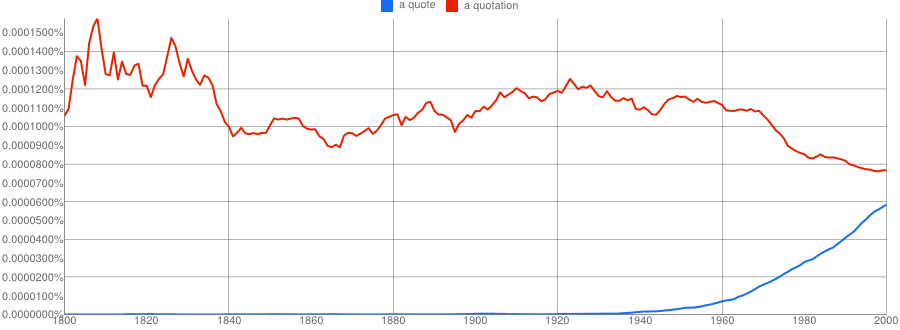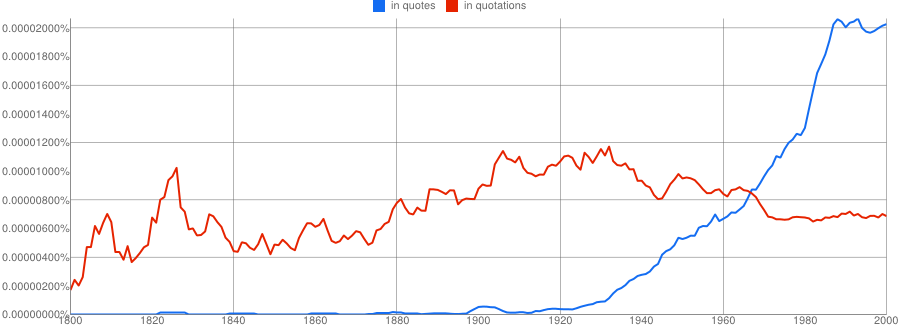Not being particularly adept at using Google's Ngram viewer, I put the two words (quotes and quotations) into the viewer and it displayed a result, with the two lines staying pretty close together until late in the 20th century. Then I thought to myself, "Does Ngram 'know' that I want it to compare two nouns as opposed to one verb and one noun?" (You know, apple to apple, orange to orange.)
At any rate, I've always preferred using quotes as a verb and quotations as a noun, but I seem to be in a minority nowadays, with most folks considering the two words to be synonyms.
My questions are, then:
When did quotes (as in "My favorite 'quotes' are from Mark Twain"), begin to replace quotations (as in "My favorite 'quotations' are from Mark Twain") in AE and/or BE?
Should I just "go with the flow" and adapt to the change? (If I do not, I have a feeling I'll remain in the company of a very small minority and be considered a nitpicker by the majority!)
Did Ngram do what I expected it to do, treating as nouns both quotes and quotations?


